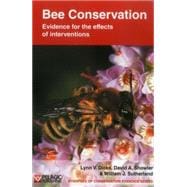
Note: Supplemental materials are not guaranteed with Rental or Used book purchases.
Purchase Benefits
What is included with this book?
Lynn Dicks is a Research Fellow at the Department of Zoology, University of Cambridge. She has been a NERC Knowledge Exchange Fellow, linked to the Insect Pollinators Initiative(2011-2014) and a Co-ordinating Lead Author of the IPBES Thematic assessment of pollinators, pollination and food production. She has a degree from Oxford University in Biological Sciences (1995) and a PhD from Cambridge University (2002) on the ecology of flower-visiting insects.
Bill Sutherland is Miriam Rothschild Professor of Conservation Biology at the University of Cambridge and President of the British Ecological Society. He is known for his research on integrating science and policy particularly in the field of evidence-based conservation. Two of his key contributions have been the horizon-scanning exercises to identify future priority issues and the 100 important questions in various disciplines (ecology, poverty prevention, global agriculture and food amongst others). He has also worked extensively on bird population ecology and the biodiversity impacts of agriculture.
Introduction
Threat: residential and commercial development
Threat: land use change due to agriculture
Threat: pollution - agricultural and forestry effluents
Threat: transportation and service corridors
Threat: biological resource use
Threat: natural system modification
Threat: invasive non-native species
Threat: problematic native species
Providing artificial nest sites for bees
Education and awareness-raising
Index
The New copy of this book will include any supplemental materials advertised. Please check the title of the book to determine if it should include any access cards, study guides, lab manuals, CDs, etc.
The Used, Rental and eBook copies of this book are not guaranteed to include any supplemental materials. Typically, only the book itself is included. This is true even if the title states it includes any access cards, study guides, lab manuals, CDs, etc.